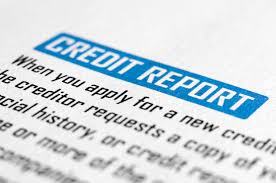
Are you ready for the new credit reporting requirements (trended data)?
Although we are a hard money lender and do not rely heavily on credit for our loan decisions (we are an asset lender focusing on the property), the new credit reporting requirement are going to have a huge impact.
Fannie Mae/ Freddie Mac, the largest purchasers of mortgages announced they would begin requiring the new credit reports come June 25th. This is known as “trended credit data” and is going to have drastic impacts on borrowers after June 25th.
I was alerted of the new changes through Equifax and they put out a handy guide that goes through the changes. Fannie Mae also did a comparison of the new requirements vs. the old ones and there are definitely some big surprises!
- What is trended Credit and why does it matter?
- What does this change mean for borrowers?
- If you are self-employed, hold on to your saddle; Why?
- See the full breakout with a link to the Equifax summary and also Fannie/Freddie summary
- What is trended credit and why does it matter? Currently credit reports look at one point in time (the date the credit report is pulled). The new credit report will look at 24 months of rolling history. According to Equifax: “It provides a fuller picture of a consumer’s credit behavior, supplementing the traditional moment-in-time credit snapshot with a more dynamic 2-year picture of a consumer’s history of managing revolving accounts. With 24 months of historical data (such as payment and balance), lenders may be able to see how consumers have managed their credit accounts over time, allowing them to better predict future behavior and assess risk.”
- What does this change mean for borrowers? Basically it is going to give more weight on the revolving credit lines and their usage. For example if you have a credit card bill and you pay in full every month you will be a lower risk borrower as opposed to if you pay the minimum every month. Under the old credit reporting it focused primarily on utilization as opposed to the 24 months of history so if you had a higher utilization even if you paid in full every month your credit score would be lower. Under the new report, if you do not pay the revolving lines in full and carry a balance from month to month you are deemed higher risk (no real definition of the actual impact percentage wise on the score)
- If you are self-employed, hold onto your saddle; Why? Under the old credit model self-employment itself wasn’t as big of a factor. Under the new model, self-employment is a significant factor in default risk. Per Fannie Mae: “Self-employment income can vary from year to year, and because of the increased chance of uneven cash flows, self-employment introduces an additional layer of risk to a mortgage loan application that is not present with salaried borrowers. Research has shown that self-employed borrowers tend to default on their mortgages more often than salaried borrowers, when all other risk factors are held constant. DU will take this additional risk into consideration” Lenders were already factoring this into their analysis to some extent but with the new guidelines self-employment will be an even bigger issue for certain borrowers
- Need more information?
- Equifax did a nice guide with some frequently asked questions and answers: See PDF of this document
- Fannie Mae did a table (Fannie Mae trended credit comparison table) and also all the full details on their site: https://www.fanniemae.com/content/release_notes/du-do-release-notes-06252016.pdf
Written by Glen Weinberg, COO/ VP Fairview Commercial Lending. Glen has been published as an expert in hard money lending, real estate valuation, financing, and various other real estate topics in the Colorado Real Estate Journal, the CO Biz Magazine, The Denver Post, The Scotsman mortgage broker guide, Mortgage Professional America and various other national publications.
Fairview is a hard money lender specializing in private money loans / non-bank real estate loans in Georgia, Colorado, Illinois, and Florida. They are recognized in the industry as the leader in hard money lending with no upfront fees or any other games. Learn more about Hard Money Lending through our free Hard Money Guide. To get started on a loan all they need is their simple one page application (no upfront fees or other games).
